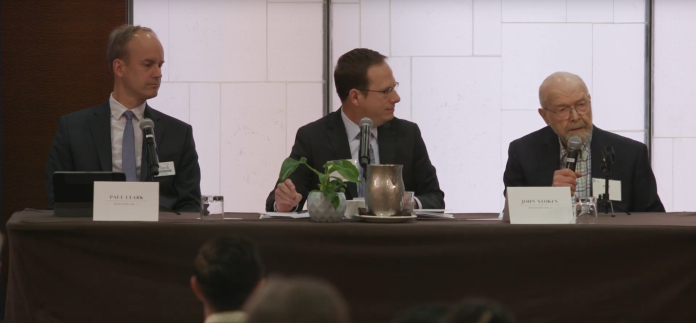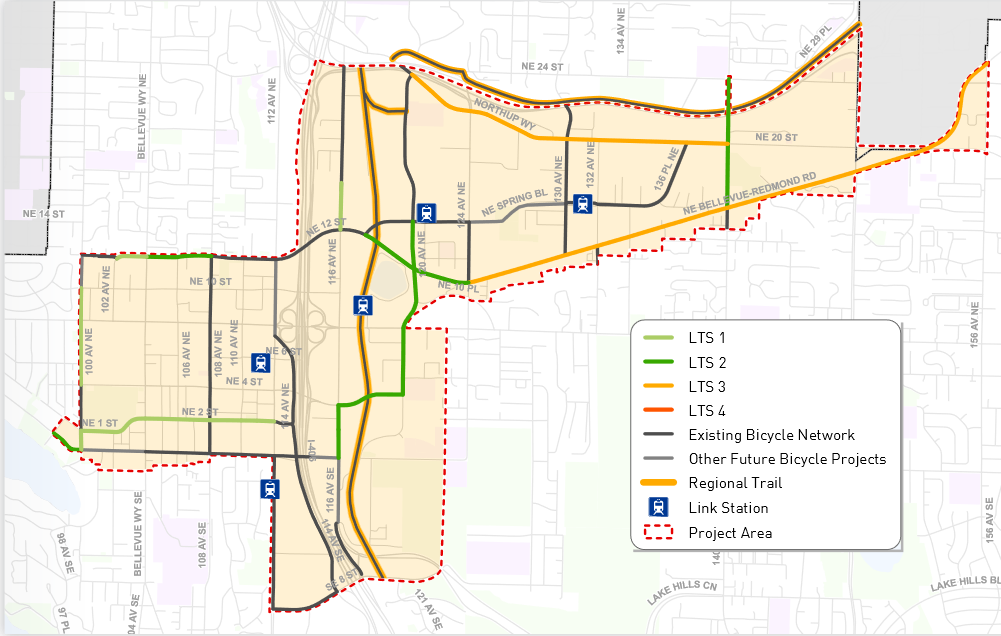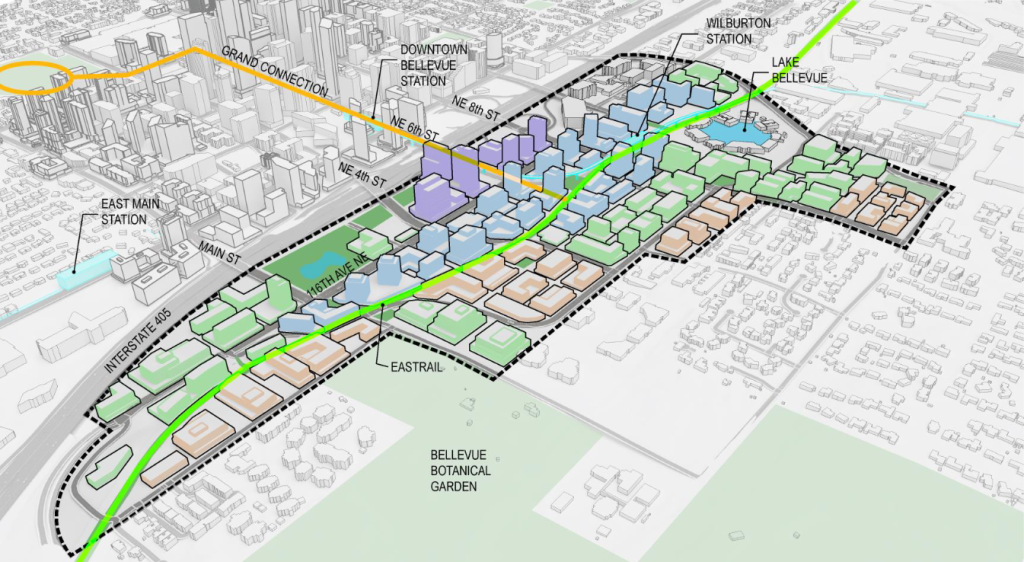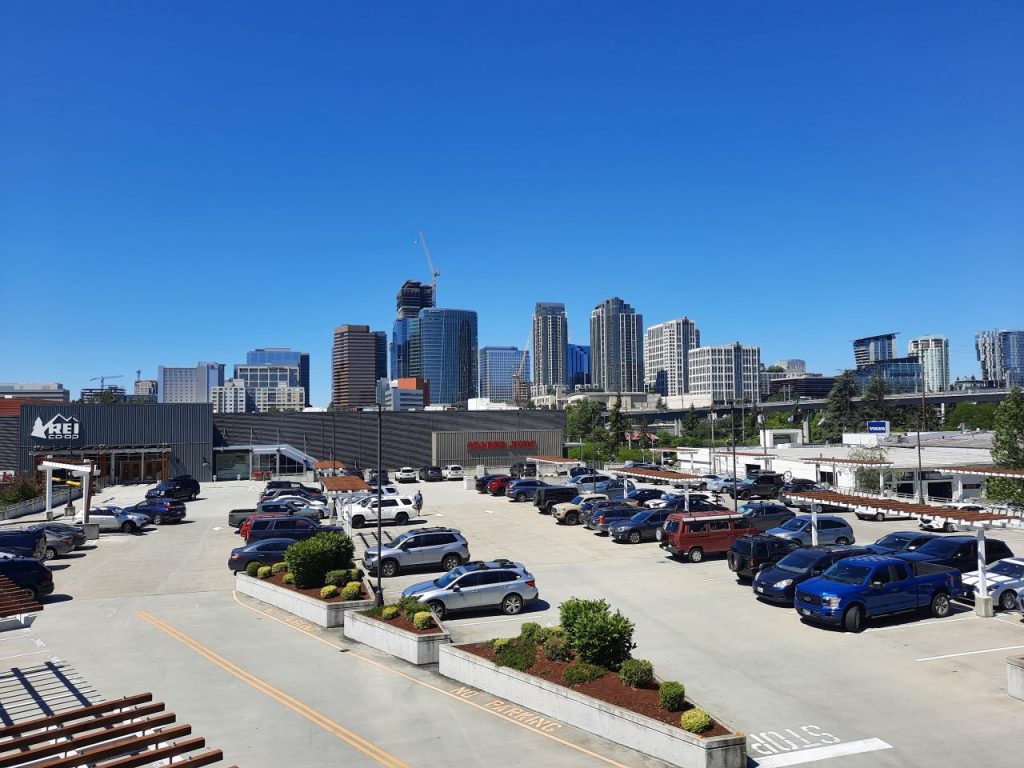
With ballots for the November general election set to go out in just two weeks, local voters will soon be tasked with selecting elected officials that best reflect their priorities and values. In Bellevue, four of seven positions on the city council will be up for grabs, with progressive incumbents Janice Zahn and John Stokes playing defense against conservative challengers Betsi Hummer and Paul Clark, respectively.
However, next year’s council will see new faces regardless of the results on November 7th. With Councilmembers Jennifer Robertson and Jeremy Barksdale each choosing not to run for another term, easy electoral lanes have opened for David Hamilton and Mo Malakoutian, as neither face a serious challenger in their races. For full transparency, The Urbanist‘s election committee has endorsed Janice Zahn and Mo Malakoutian for their respective positions.
Although there are certainly a whirlwind of things to come between now and election day on Tuesday, November 7th, the three head-to-head events that will likely have the largest reach for Bellevue voters are now in the books. First up was an environmental forum hosted by People for Climate Action and 10 other organizations interested in hearing candidates’ perspectives on climate change, growth, and tree canopy. Later in the week, candidates for Positions 1 and 5 squared off in the Bellevue Chamber of Commerce debate, with topics ranging from affordable housing and homelessness, to public safety. Finally, all candidates had the opportunity to talk about policies affecting Downtown livability at a breakfast forum with the Bellevue Downtown Association (BDA).
None of the events saw any major dustups or particularly intense gaffes, but they did each help cement clear distinctions between candidates running to lead the state’s fifth largest city (after Seattle, Spokane, Tacoma and Vancouver).
For example, Bellevue will need to take significant action to meet its Environmental Stewardship Initiative goal of 50% emissions reductions by 2030 and 80% by 2050. While Stokes and Zahn pointed to their support for increasing the city’s climate staff from two to nine positions to help meet these targets, their challengers, Clark and Hummer, both expressed a desire to reassess Bellevue’s emission reduction goals.
Noting Bellevue’s increasing population, Clark opined that it was not unreasonable to adjust Bellevue’s climate targets accordingly and said that many factors, such as state level fuel standards, would fall outside of Bellevue’s control. Hummer in turn shared her belief that transportation-focused climate action could disproportionately impact lower income residents reliant on their cars.
However, data from the Draft Concept Guide for the Bike Bellevue program contradicts this by showing that Bellevue residents below the poverty line are more likely to walk or bike than residents above it. At the chamber debate, both challengers came out with comments against the program, which would repurpose some vehicle travel lanes for 15 miles of improved bicycle infrastructure, implying that it would increase congestion and not be worth the cost.

In contrast, Zahn framed Bike Bellevue as an important part of a larger context around achieving Bellevue’s Vision Zero goal to eliminate fatalities and serious injuries on city streets by 2030.
On land use and zoning, Clark in particular came out in strong support of upholding existing patterns of exclusionary zoning by prioritizing growth in the Downtown, Wilburton, and BelRed neighborhoods. As a Downtown resident himself, Clark touted the quality of life granted to him by living in a walkable neighborhood where his family can easily access restaurants, employment, and recreation. He foresees positive changes to come in the Wilburton neighborhood, where he would want to maximize building heights to enable more people to live in a walkable community with access to frequent transit.

However, he framed any growth within Bellevue that would occur outside these areas as contributing to “intra-city sprawl, indiscriminate upzoning, more traffic, more congestion, [and] more emissions.” This ignores how creating more opportunities for mixed-use development throughout Bellevue could allow more residents (including current residents outside dense neighborhoods) to access their day-to-day needs close to home, which could help reduce the city’s vehicle miles traveled (VMT) and greenhouse gas emissions.
Furthermore, Clark doubled down at the chamber debate by saying that it would be unrealistic for “a house with a yard” to become affordable in Bellevue under any growth policy scenario, citing insufficient available land. However, his subsequent suggestion that the legislature should further expand the the Urban Growth Boundary to make more land available for development would contribute to inter-city sprawl that would lead to increased regional emissions.

Across all events, Stokes’ comments often remained generic — emphasizing collaboration and community buy-in to meet the challenges presented by climate change and growth without focusing on specific policy pieces. However, his support for Bike Bellevue and upholding the city’s emissions reduction targets came through clearly. At the environmental forum, Stokes even had a good response to perceived equity concerns raised by Hummer around climate action, acknowledging that low-income residents are also likely to experience the most severe impacts from climate change.
Both incumbents had to stave off critiques from their opponents about their support for public safety, with Hummer again repeating incorrect claims about her opponent’s votes on the city’s 2023-2024 operating budget. Zahn took time to refute these comments while pointing towards her collaboration with regional stakeholders in multiple policy arenas, including on issues of public safety. At the chamber debate, Clark took issue with Stokes not listing public safety as a priority on his website, believing that this could indicate a lack of desire to solve issues like addressing a police hiring gap.
Bellevue’s Police Department already offers a generous hiring bonus of $16,000 for lateral transfers, and Clark does not say what further action he would enact to entice more officers to join the force. Both Hummer and Clark have received the endorsement of the Bellevue Police Officers’ Guild, while Stokes and Zahn have each been endorsed by the Bellevue firefighters’ union.
Without serious challengers, Hamilton and Malakoutian had little incentive to stray into controversial policy territory, but that doesn’t mean they said nothing of interest.
At the BDA forum, Malakoutian supported further investments to make Bellevue a more walkable and bikeable city to complement upcoming light rail service. However, alongside a desire to reduce car usage, he simultaneously expressed an interest in expanding the vehicular capacity of certain roadways and using technology to improve traffic flow. Such policies could further incentivize driving and lead to increased emissions through induced demand, but he took time to underscore how his support of increased affordable housing stock within Bellevue would lead to reduced transportation emissions by enabling more people to live closer to employment opportunities.
Across his appearances, Hamilton played well to each audience in front of him. His stated support for meeting Bellevue’s climate targets and his acknowledgement that climate change is an issue that each department in Bellevue will need to address likely earned him support among attendees at the environmental forum. Similarly, his desire for continued engagement and collaboration with Downtown business owners, visitors, and stakeholders was the right message for the business-oriented BDA crowd.
Such tailored messaging may do little to reveal specific policy priorities once he inevitably gets into office, but when turnout for local, off-year elections barely eclipses 40%, giving residents a reason to submit their ballots is paramount.
In this task, perhaps each candidate can come away from these forums feeling like they succeeded.
Chris Randels is the founder and director of Complete Streets Bellevue, an advocacy organization looking to make it easier for people to get around Bellevue without a car. Chris lived in the Lake Hills neighborhood for nearly a decade and cares about reducing emissions and improving safety in the Eastside's largest city.

